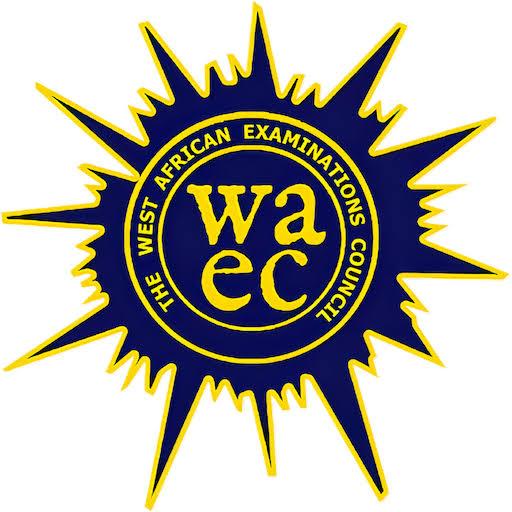Waec | Gce Economics Syllabus + Success Tips (2025/2026)
Preparing for your WAEC or GCE Economics exam? This guide gives you everything you need — from the official syllabus to top exam success tips. Economics is not just about memorizing definitions but understanding real-life financial activities and market operations. With the right study plan, clear understanding of key topics, and consistent practice, you can easily pass and score high grades. Below is the complete syllabus, exam format, and success strategies to help you prepare effectively.
Official WAEC | GCE Economics Syllabus (2025/2026)
If you’re preparing for the WAEC or GCE Economics exam, understanding the syllabus is your first step to success. Below is the complete syllabus presented in a structured format to help you focus your reading.
1. Basic Economic Principles
| Topics | Focus Areas |
|---|---|
| Nature & Scope of Economics | Definition, micro & macro branches, economic problems |
| Tools of Economic Analysis | Tables, charts, graphs, mean, median, mode, dispersion |
| Theory of Demand | Law, curve, elasticity, determinants of demand |
| Theory of Supply | Law, curve, elasticity, determinants of supply |
| Price Determination | Equilibrium price, price controls (floor/ceiling) |
| Production | Types, factors, division of labour, scale of production |
| Cost & Revenue | Types of costs/revenue, marginal analysis |
| Market Structures | Monopoly, perfect/monopolistic competition, oligopoly |
| Distribution | Factor rewards: wages, rent, interest, profit |
2. Money and Financial Institutions
| Topics | Focus Areas |
|---|---|
| Money | Functions, characteristics, types |
| Financial Institutions | Central bank, commercial banks, merchant banks |
| Stock Exchange Market | Functions, operations, importance |
3. Economic Development and Planning
| Topics | Focus Areas |
|---|---|
| Economic Growth | Features, indicators, challenges in Nigeria |
| Economic Planning | Objectives, importance, problems |
4. International Trade
| Topics | Focus Areas |
|---|---|
| Theory of Trade | Benefits, challenges, balance of trade/payment |
| Foreign Exchange | Exchange rate systems, market operations |
| International Organizations | IMF, WTO, ECOWAS, World Bank, AfDB |
5. Government and the Economy
| Topics | Focus Areas |
|---|---|
| Public Finance | Government revenue, expenditure, budgeting |
| Taxation | Types, purposes, effects of taxation |
| Economic Policies | Monetary, fiscal, trade policies |
| Population | Growth, theories (Malthusian, Optimum, etc.) |
| National Income | GDP, GNP, methods of measuring national income |
6. Contemporary Economic Issues
-
Unemployment
-
Inflation
-
Poverty
-
Globalization
-
Sustainable Development
-
Entrepreneurship & Small Businesses
WAEC | GCE Economics Exam Format
| Paper | Type of Questions | Time Duration |
|---|---|---|
| Paper 1 | 50 Objective Questions | 1 Hour |
| Paper 2 | 8 Essay Questions (Answer 5) | 2 Hours 30 Minutes |
Top Success Tips for WAEC | GCE Economics Exam
| Tip | Reason |
|---|---|
| Focus on the syllabus | Avoid wasting time on irrelevant topics |
| Practice diagrams and graphs | Key for demand/supply curves, cost structures |
| Solve past questions | Familiarize with question style and marking |
| Use recommended textbooks | E.g. Anyaele’s Comprehensive Economics |
| Relate to real-world scenarios | Helps understanding, especially in essays |
| Manage exam time properly | Avoid spending too much time on one question |
| Watch question keywords | Answer exactly what is asked |
| Revise regularly | Continuous study beats last-minute cramming |
| Join group discussions | Learn from others and stay motivated |
| Stay updated on economic issues | Useful for real-life applications in essays |
FAQs About WAEC | GCE Economics Exam
1. What is the best textbook for WAEC Economics?
Comprehensive Economics by J.U. Anyaele and Simplified Economics are top choices.
2. How many questions are in WAEC Economics Paper 1?
50 multiple-choice objective questions.
3. How do I answer WAEC Economics essay questions?
Focus on explaining with diagrams, avoid unnecessary details, and write clear, structured answers.
4. Which topics are most important?
Demand and supply, market structures, production, national income, and international trade are usually prominent.
5. Is solving past questions helpful?
Yes. It prepares you for exam format and common questions.
Conclusion
Economics is a simple and high-scoring subject if approached strategically. Stick to the syllabus, practice regularly, and understand economic concepts in real life. Don’t just memorize—understand why things happen economically.
Master diagrams, revise past WAEC/GCE questions, and use quality textbooks like Anyaele’s Comprehensive Economics. Consistency is the real secret to success.



